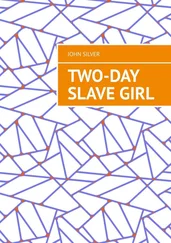‘There has to be law and order,” he said stiffly. Then, with a change of tone, he went on:
‘This is a well-found place you have here, Mr. Masen.”
“Mr. Brent has,” I corrected.
“We will leave Mr. Brent out. He is here only because you made it possible for him to stay here.”
I looked across at Dennis. His face was set.
“Nevertheless, it is his property,” I said.
“It was, I understand. But, the state of society which gave sanction to his ownership no longer exists. Titles to property have therefore ceased to be valid. Furthermore, Mr. Brent is not sighted, so that he cannot in any case be considered competent to hold authority.”
“Indeed!” I said again.
I had had a distaste for this young man and his decisive ways at our first meeting. Further acquaintance was doing nothing to mellow it. He went on:
“This is a matter of survival. Sentiment cannot be allowed to interfere with the necessary practical measures. Now, Mrs. Masen has told me that you number eight altogether, Five adults, this girl, and two small children. All of you are sighted, except these three.” He indicated Dennis, Mary, and Joyce.
‘That is so,” I admitted.
“H’m. That’s quite disproportionate, you know. There’ll have to be some changes here, I’m afraid. We have to be realistic in times like this.”
Josella’s eye caught mine. LI saw a warning in it. But in any case, I had no intention of breaking out just then. I had seen the redheaded man’s direct methods in action, and I wanted to know more of what I was up against. Apparently he realized that I would.
“I’d better put you in the picture,” he said. “Briefly, it is this. Regional H. Q. is at Brighton. London soon became too bad for us. But in Brighton we were able to clear and quarantine a part of the town, and we ran it. Brighton’s a big place. When the sickness had passed and we could get around more, there were plenty of stores to begin with. More recently we have been running in convoys from other places. But that’s folding up now. The roads are getting too bad for trucks, and they are having to go too far. It had to come, of course. We’d figured that we could last out there several years longer—still, there it is. It’s possible we undertook to look after too many from the start. Anyway, we are now having to disperse. The only way to keep going will be to live off the land. To do that, we’ve got to break up into smaller units. The standard unit has been fixed at one sighted person to ten blind, plus any children.
“You have a good place here, fully capable of supporting two units. We shall allocate to you seventeen blind persons, making twenty with the three already here—again, of course, plus any children they may have.”
I stared at him in amazement.
“You’re seriously suggesting that twenty people and their children can live off this land,” I said. “Why’ it’s utterly impossible. We’ve been wondering whether we shall be able to support ourselves on it.”
He shook his head confidently.
“It is perfectly possible. And what I am offering you is the command of the double unit we shall install here. Frankly, if you do not care to take it, we shall put in someone else who will. We can’t afford waste in these times.”
“But just look at the place,” I repeated. “It simply can’t do it.”
“I assure you that it can, Mr. Masen. Of course you’ll have to lower your standards a bit—we all shall, for the next few years, but when the children grow up you’ll begin to have labor to expand with. For six or seven years it’s going to mean personal hard work for you, I admit—that can’t be helped. From then on, however, you’ll gradually be able to relax until you are simply supervising. Surely that’s going to make a good return for just a few years of the tougher going?
“Placed as you are now, what sort of future would you have? Nothing but hard work until you died in your tracks— and your children would be faced with working in the same way, just to keep going, not more than that. Where are the future leaders and administrators to come from in that kind of setup? Your way, you’d be worn out and still in harness in another twenty years—and all your children would be yokels. Our way, you’ll be the head of a clan that’s working for you, and you’ll have an inheritance to hand on to your sons.”
Comprehension began to come to me. I said wonderingly:
“Am I to understand that you are offering me a kind of-feudal seigneury?”
“Ah,” he said. “I see you do begin to understand. It is, of course, the obvious and quite natural social and economic form for that state of things we are having to face now.”
There was no doubt whatever that the man was putting this forward as a perfectly serious plan. I evaded a comment on it by repeating myself:
“But the place just can’t support that many.”
“For a few years, undoubtedly, you’ll have to feed them mostly on mashed triffids—there won’t be any shortage of that raw material by the look of it.”
“Cattle food!” I said.
“But sustaining—rich in the important vitamins, I’m told. And beggars—particularly blind beggars—can’t be choosers.”
“You’re seriously suggesting that I should take on all these people and keep them on cattle fodder?”
“Listen, Mr. Masen. If it were not for us, none of these blind people would be alive at all now—nor would their children. It’s up to them to do what we tell them, take what we give them, and be thankful for whatever they get. If they like to refuse what we offer—well, that’s their own funeral.”
I decided it would be unwise to say what I felt about such a philosophy at the moment. I turned to another angle:
“I don’t see— Tell me, just where do you and your Council stand in all this?”
“Supreme authority and legislative power is vested in the Council. It will rule. It will also control the armed forces.”
“Aimed forces!” I repeated blankly.
“Certainly. The forces will be raised, as and when necessary, by levies on what you called the seigneuries. In return, you will have the right to call on the Council in cases of attack from outside or unrest within.”
I was beginning to feel a bit winded.
“An army! Surely a small mobile squad of police—”
“I see you haven’t grasped the wider aspect of the situation, Mr. Masen. This affliction we have had was not confined to these islands, you know. It was world-wide. Everywhere there is the same sort of chaos—that must be so, or we should have heard differently by now—and in every country there are probably a few survivors. Now it stands to reason, doesn’t it, that the first country to get on its feet again and put itself in order is also going to be the country to have the chance of bringing order elsewhere? Do you suggest that we should leave it for some other country to do this, and so make itself the new dominant power in Europe—and possibly farther afield? Obviously not. Clearly, it is our national duty to get ourselves back on our feet as soon as possible and assume the dominant status, so that we can prevent dangerous opposition from organizing against us. Therefore, the sooner we can raise a force adequate to discourage any likely aggressors, the better.”
For some moments silence lay on the room. Then Dennis laughed unnaturally:
“Great God almighty! We’ve lived through all this-—and now the man proposes to start a wan”
Torrence said shortly:
“I don’t seem to have made myself clear. The word ‘war’ is an unjustifiable exaggeration. It will be simply a matter of pacifying and administering tribes that have reverted to primitive lawlessness.”
“Unless, of course, the same benevolent idea happens to have occurred to them,” Dennis suggested.
Читать дальше











